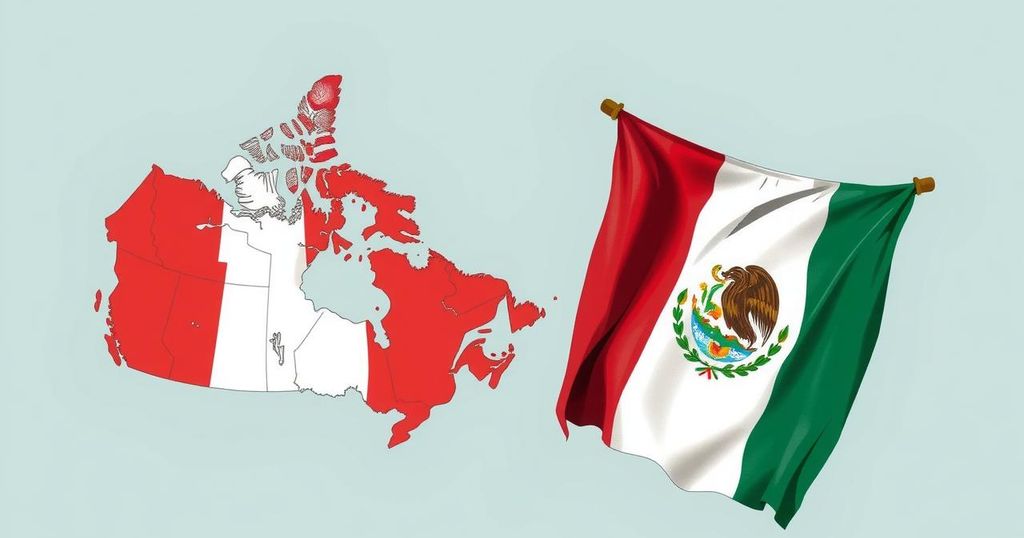World news
AFP, ASIA, BELARUS, BLOOMBERG, CANADA, CLAUDIA SHEINBAUM, CUBA, DONALD TRUMP, EUROPE, EUROPE/ASIA, HURRICANE BERYL, INDIA, LEGAL ISSUES, MARK CARNEY, MEXICO, NATIONAL SECURITY, NORTH AMERICA, NORTH KOREA, PHILIPPINES, POLITICS, RUSSIA, TREASON, TRUMP, U.S. ELECTIONS, UNITED STATES, US, WHITE HOUSE
Jamal Robinson
0 Comments
Canada and Mexico’s Exemption from Trump’s April 2 Reciprocal Tariffs
Canada and Mexico were exempted from Trump’s April 2 reciprocal tariffs, avoiding new duties that could reach 45 percent. However, existing tariffs apply to these nations, and they face ongoing economic challenges. The USMCA helps shield their goods from new tariffs, but potential future negotiations remain a concern.
On April 2, 2024, President Donald Trump announced new reciprocal tariffs intended to address perceived trade injustices against the United States. Nonetheless, Canada and Mexico were notably exempt from these tariffs, which include rates starting at 10 percent and reaching as high as 45 percent on various imports. This exemption allowed both nations a temporary reprieve from the heightened trade tensions during Trump’s announcement.
Despite their exclusion from the latest round of tariffs, Canada and Mexico are not completely insulated from trade pressures. Previous tariffs of 25 percent on certain goods, particularly those linked to the fentanyl crisis, remain in effect, along with ongoing tariffs on automotive products. The existing tariffs will continue to exert economic pressure on trade with the United States.
Under the US-Mexico-Canada Agreement (USMCA), goods from both Canada and Mexico continue to enjoy immunity from the newly announced reciprocal tariffs. However, should new agreements or compromises not be reached, both nations may face the introductory rates set by Trump. As a precautionary measure, Canadian Prime Minister Mark Carney emphasized the intention to counteract these tariffs to protect workers and trade interests.
While Canada and Mexico escaped the new tariffs, other countries saw substantial increases in duties: India faces a 26 percent tariff, the European Union a 20 percent tariff, and Vietnam a striking 45 percent tariff. Notably, China will experience a 34 percent duty, which escalates to 54 percent when factoring in past tariffs imposed in response to the fentanyl crisis. Additionally, countries such as Cuba, Belarus, North Korea, and Russia are excluded from these tariffs due to existing sanctions that hinder trade.
In summary, Canada and Mexico successfully avoided new reciprocal tariffs from President Trump, primarily due to existing tariffs and their participation under the USMCA. However, they are still subject to previous duties related to trade concerns, particularly concerning the fentanyl crisis. While they received a reprieve, the broader landscape of global trade tariffs remains fraught with complexities, affecting numerous other countries significantly.
Original Source: www.hindustantimes.com




Post Comment